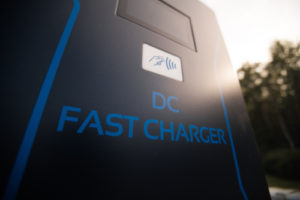APPLICATIONS OF TECHNOLOGY:
- EV batteries
- Low temperature batteries
- Extreme fast charging applications
BENEFITS:
- High rate capability
- Good capacity retention
- Strong low temperature performance
BACKGROUND:
- Li-ion batteries suffer from capacity degradation over time, especially at high charge rates or when operating at low temperatures because of mass transfer limitations. Lithium metal can irreversibly plate out on the surface of the electrode or form dendrites resulting in permanent capacity loss if the battery is charged faster than the lithium ions can diffuse into the graphite anode. In order to meet the extreme-fast charging target for electric vehicles of 80% charge in 15 minutes, advances beyond current lithium ion battery technology need to be made.
TECHNOLOGY OVERVIEW:
Berkeley Lab researchers have developed a method for processing graphite anodes to improve fast charging performance. They were able to improve the reversible capacity retention of the anode by coating it with a thin layer of silver, in which lithium is highly soluble.
This metal coating acts as a lithium reservoir and improves the reversible performance of the anode under conditions that limit the diffusion of lithium into the anode, such as fast charging or low temperature operation. Tested at a 4C charge rate, the coated anode demonstrated a Coulomb efficiency of about 60% after 30 cycles, compared to the untreated anode’s approximately 20% Coulomb efficiency after the same number of cycles, showing the coating’s substantial improvement to the reversible performance of the graphite anode.
DEVELOPMENT STAGE: Proof of concept validated in lab
PRINCIPAL INVESTIGATORS:
- Wei Tong
- Ji Qian
STATUS: Patent pending.
OPPORTUNITIES: Available for licensing or collaborative research.
FOR MORE INFORMATION: https://pubs.acs.org/doi/abs/10.1021/acsnano.2c05428
